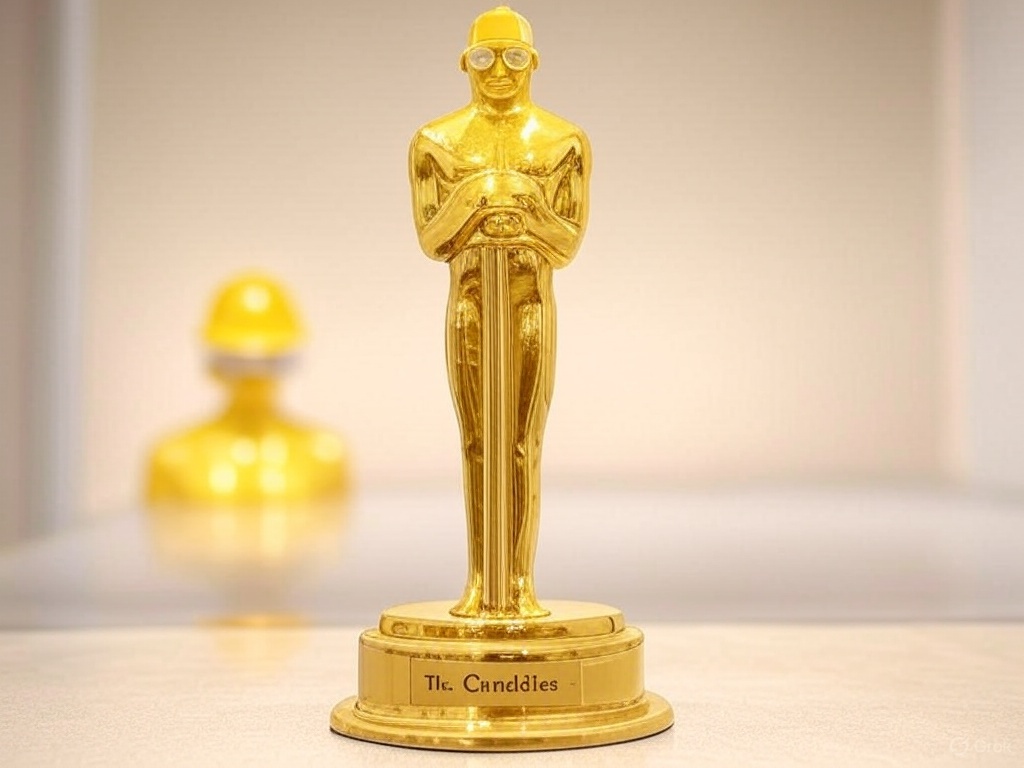Warning – controversial post. I am fighting mad about this whole Keystone XL debacle but not in the way many might think. For what it’s worth, I have cooled down a bit, but I wrote it yesterday in the heat of the moment and am currently too lazy to rewrite it.
So here we are, officially two and a half days into the Biden administration and we have already managed to hit one of the forecasts I made last week. I feel like I should pat myself on the back, except disappointingly, the part of my forecast that came to pass is of course the cancellation of the Keystone XL Presidential Permit. This is, in all likelihood the final nail in the coffin of a project that has been around since 2008.
I am, of course, not willing to give up all hope, there is still a chance, albeit infinitesimal, that a cap in hand Justin Trudeau could revive some dim glimmer of hope, or that enough mid-State Republicans, Democrats and union activists apply sufficient pressure to Joe that he reverses course or agrees to take a closer look. It’s also entirely possible that I could become an NFL quarterback in time to start the Super Bowl. Nothing is impossible. It’s just very unlikely.
This of course means a massive loss for the province of Alberta which had partnered with TC Energy via direct equity investment and other financial supports to get the project started.
Keystone XL was first proposed in 2008 when Ed Stelmach was premier of Alberta. Remember him? No? Well neither do I. KXL has seen its star rise and set so many times I actually set my watch to it. At 13 years old, KXL has now lasted 4 Energy Easts, 3 Northern Gateways, 2 TransMountain Expansions, 3.5 Line 3’s and 431 Scaramucci’s.
Keystone XL was proposed to move 890,000 barrels of oil per day from Alberta to Cushing and hence to the Gulf Coast for processing. It was to be a game changer for volume. Proposed at a time when oil prices were literally on fire, the global financial system was still intact and oilsands investment capital was limitless, it made eminent sense.
I have always been in favour of KXL but it always needed help to get done because it was new and it was in someone else’s backyard. And as we’ve seen, it is easier to build in someone else’s land when either a) there is an existing and old line that needs replacing (Line 3) or b) you engage in reasonable consultation, respect your own rules and put your money where your mouth is (TMX).
But, and there’s always a but, the market evolved, investment dried up and oilsands growth slowed. At the same time, rising US light tight oil production delivered the false hope of permanent energy independence and KXL came to be viewed as strategically unnecessary by many in power and high carbon bitumen became an easy target for an Obama administration looking to prove their bona fides on the environment. That’s why Obama denied the permit. Not once. Twice.
Even when Trump revived it in 2017 and again in 2019, it never really got off the ground and was always a bit of an afterthought. There was absolutely no enthusiasm for the project, insofar as a pipeline can engender fandom. It was always a project whose proponent was from Canada, moving a type of crude no one understood to a market that seemed well-enough supplied. Meh, who cares.
To even the most blind eye, the writing was on the wall for KXL as soon as Biden announced his candidacy. In fact, the writing was on the wall as soon as Trump granted his presidential permit. And it was on the wall when the baker’s dozen of Democratic candidates started lining up – reminder, Biden is the least radical of them all.
All the while, on the ground resistance to the project in the United States has proven exceptionally robust. The resistance was wide-ranging and included environmental and first nations activists winning over sympathetic judges and resulting in the shutting down construction (just this past July) to await a ruling on water crossings (which TC was likely to lose) as well as wealthy (and Republican) Nebraska land owners who didn’t want the pipeline across their land and successfully fought for a route change (still awaiting approval, ahem). I can guarantee that none of the people involved in any of these battles thinks of, cares about or can find on a map Alberta. I know this because I asked a guy from Nebraska what his thoughts were and he thought Alberta was in Eastern Canada.
Want some more breadcrumbs? Remember back in 2015 when the project was then seemingly cancelled for good? That was Obama. Who was his VP then? Oh right, Joe Biden. And then in 2017 Donald Trump set about deliberately dismantling that legacy – which was also Biden’s legacy. Did anyone really think Joe Biden wasn’t going to get his turn to do the same? Of the 17 Executive orders signed on Day 1, almost all were a repudiation of Trump policies.
And the one rescinding the permit? We weren’t even the highlight of that omnibus environmental order that among other things restored EPA powers, re-banned Arctic drilling, re-introduced methane regulations, re-introduced carbon cost impacts into assessments and, yes, pulled the plug on the KXL for the very same reason it was pulled in 2015. We had our chance and we blew it. It was before 2015, when Obama told Stephen Harper that he would permit KXL if we worked on a carbon tax and was told Canada wouldn’t introduce one. Then Harper very publicly said KXL was a no-brainer. Whoops! But we have a carbon tax now, doesn’t that count? Not when Harper’s former #2 is leading the province yelling about the pipeline while simultaneously suing the Federal government over what? Yeah, the carbon tax. Then pulling out his own over the top rhetoric calling the governor of Michigan brain-dead for challenging Enbridge’s Line 5 crossing of the Straits of Mackinac. Dale Carnegie was not impressed.
Oy.
While I remain of the (decidedly Canadian and Albertan) view that KXL is a good to have egress option and better than the alternative of increased shipments by rail, what I’m not going to do is devolve into a self-righteous rant about what damage this cancellation is going to do to Alberta and how it is a betrayal by a friend and ally. Nor will I get into any self-defeating discussion about sanctions and tariffs and retaliatory actions. I will leave the histrionics to the politicians.
That said, if you were surprised by, or weren’t prepared for the cancellation of this permit, you just haven’t been paying attention.
At least from TC Energy’s perspective, they weren’t into it for any more than the billions they have already spent and written off and as a deeply involved proponent, there is zero chance they didn’t see this coming or have contingency plans in place.
It’s not like they’ve spent the past 9 months feverishly building the Canadian portion of the pipeline and feeding a whole bunch of false hope, right? At least not with their own money. Absolutely not. But other people’s money? Bring it on! Thank you Alberta taxpayers!
Ok, ok. I admit. The Alberta government support for KXL seemed, at the time it was announced in April 2020, a fair shot of momentum into a project that was mired in uncertainty, in the middle of a pandemic, in support of an industry that needed a bit of good news, by a province that was going to be the primary beneficiary of the project. I may have even celebrated it in this blog.
Here’s the quote BTW, from my Q1 forecast review on April 3, 2020, two days after the announcement:
“Keystone XL – at the time without an FID was a real downer for me. I expected it to be a victim of the US election. Kudos to Jason Kenney, the Alberta Government and TC Energy for inking a deal at the darkest hour to get this critical energy infrastructure moving forward.”
Clearly my initial reaction was favourable, absent critical details. And to be fair, pretty much everyone who wasn’t against the project itself thought it wasn’t unreasonable, including the federal government. But as the details (which had been kept secret and murky) started to trickle out via innuendo and regulatory filings from TC Energy, the deal started to look worse and worse
First off, the deal predated the pandemic. The announcement from the government said they had been working with TC for six months, so this was not some form of stimulative reaction to a COVID-ravaged sector.
Second, and more importantly, the deal as it turned out was remarkably one-sided.
Ignoring the $6 billion in loan guarantees for now, as it appears they were not yet in play, we, the Alberta taxpayers, committed to putting $1.1 billion of borrowed money as an equity investment into the KXL project subsidiary of TC Energy (invested to date according to filings is some $850 million).
Note importantly that this was not TC Energy equity – it was equity in the project. Equity which, by the way, doesn’t have recourse if things go sideways. Equity which was callable by TC Energy at any time at cost. Equity which had a put available to the Alberta Government if and when the project was completed. Options which, it should be noted, are obviously worth nothing and will never be exercised. Equity which, for all intents and purposes, is now worth nothing. Zero.
By contrast, if we/you had bought shares of TC Energy on April 1, 2020 when the announcement was made (about $60) as some form of bought deal financing, you would only be down about 4-5% as of today. Maybe there was some legitimate legal reason why this investment couldn’t have been made into TC common shares or some kind of preference share, but I suspect we will never likely know since the details on this file (as with so many others) have been kept under lock and key. That said, it’s not like there isn’t precedent as we’ve seen with GM and Bombardier.
At any rate, back to the matter at hand.
So, on the one hand, we had a private company wanting to derisk its commitment to a project which at the time had a 50/50 chance of being cancelled based on the whims of the American electoral process and that 50% chance of progress was further stymied by a regulatory process that wasn’t doing them any favours. On the other hand, here was an Alberta government looking for a political win during a really rough patch that predated the really, really rough patch. What would you do if you were TC Energy? You do what they did. You take the money and own the terms.
Looked at that way, it’s really hard to not come to the conclusion that we, the Alberta taxpayers, got played by a private company that didn’t have the corporate stones to actually build a project they were the proponent of.
And that the cancellation of the project left us holding the bag, both literally and figuratively.
Thinking about it that way puts the UCP’s over the top reactions in better context. It’s embarrassing to see a bad bet to a professional gambler go sideways in such a public manner.
OK, here’s the unsolicited opinion/advice section.
Stop. Just stop. It’s not working.
The KXL mess, combined with the massive own goal on open-pit coal mining in the province, a war room that can’t pick battles properly, the sidelining of the Alberta Energy Regulator, the exit and write-down of the oil rail car deal (don’t EVEN get me started on that) and the inquiry into foreign funded NGO boogeymen has led me to the inescapable conclusion that the governing UCP needs a fundamental reset to their approach to the energy file and they need to do it soon before it gets completely out of hand.
The combative, blame everyone else, me, me, me approach is so deeply rooted in the desire to go back to a mythical energy boom time that can never be recreated that ideological rigour has set in. You’re not getting it wrong because of other people. You’re getting it wrong because you studied for the wrong test.
It’s like we are the tobacco industry fighting a desperate rearguard action to protect a way of life we can’t admit hasn’t actually existed for more than a decade.
We have somehow made ourselves toxic. We have daily conversations with lenders and private equity groups who WILL NOT INVEST in Alberta because of “ESG” and “oilsands” and “fossil fuels”. This reduces the pool of capital available to even think of growing our industry and increases the costs for those remaining players willing to brave the black eye.
The energy industry, as a whole, is an incredible and diverse beast. It makes and loses fortunes on a regular basis and the people who work in it are smart, committed and tough as nails. We can deal with disappointment. It happens. All. The. Time.
All this theatre – the waving of the arms, the false bravado, the threats. What do they accomplish aside from encouraging those being maligned to harden their positions and find even less reason to accommodate, compromise and work with us.
We’re better than that. We’re smarter. We don’t need a show. We need a strategy for tomorrow, not yesterday.
In the meantime, we have a partially constructed 36” pipeline to nowhere (well the US border but we can’t cross it) that cost us somewhere around a billion dollars so in true Alberta fashion, it’s time to recycle and repurpose that sucker, can’t let it all go to waste.
Here are my top 7 things we can ship. Your ideas are welcome.
- Microbrew – at the very least we can keep those Montana cowboys happy.
- Water – What? If we want to export stuff people want, shouldn’t we look for something they desperately need? It can always be repurposed after.
- Crocodile tears of rage – we seem to have an over-supply right now, takeaway capacity will reduce differentials.
- CO2 – I mean why not, right? Ship it right to the border and dump it – who’s got the last laugh now, Joe?
- Speed pods – we could make it into an exciting ride
- Money – What’s another billion between friends
- Coal – If you run the coal through the pipeline, it ends up near some US rail spurs and will keep our lines free for all the oil tankers we are going to have to run in the next few years.
- CBD Oil – I hear that’s popular and good for sore muscles, especially in the elderly. I bet Ole Joe and his Peloton riding ways would be mighty happy with that.









